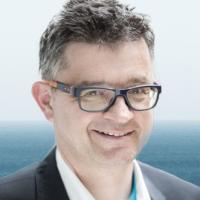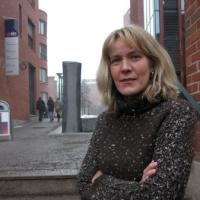A private S|B Network hybrid workshop (14:00 – 16:45 CET)
In recent years, blue economy has moved steadily closer to the centre of political and policy radar screens around the world. Initially framed as the use of marine and maritime resources for economic growth, the concept has expanded over time to the sustainable management and protection of ocean, coastal and freshwater ecosystems – and along the way breathing fresh life into “nexus thinking” about the interrelationships between water, energy and food.
As a nascent framework for planetary development, blue economy holds vast potential, but it also suffers from a lack of best practices, clear governance and the limited scope and organisation of its applications to date. Unsurprisingly, the EU – along with the UN, which launched the Decade of Sustainable Oceans in 2020, and other like-minded countries – has been at the forefront of efforts to address these issues. Last year the European Commission launched one of its flagship missions under Horizon Europe to “Restore our Ocean and Waters”, signalling the blue economy’s importance for its strategies in various policy areas, ranging from energy to fisheries. The effort goes in parallel with the launch of the Sustainable Blue Economy co-funded partnership, which aims at the creation of a climate-neutral, sustainable and productive maritime economic area.
Nonetheless, navigating in the darkness is not the best approach at sea, and in this context research can provide a safe harbour. To reap the benefits coming from the marine environment, and to avoid the depletion of its resources and its ability to help in the fight against climate change, solid research, data, planning and cross-border cooperation will be crucial elements moving forward. This is already evident in some of the blue economy sectors that show the highest potential – from sustainable fishing and aquaculture, to marine renewable energy and blue biotechnologies – but is equally true in more problematic domains like deep sea mining. Yet without clear scientific evidence of the impact of new practices and technologies, the blue economy will suffer from barriers to implementation and a lack of investment. Both elements are crucial, and they may well define if the blue economy is here to stay, or just a passing wave.
Against this backdrop, what is the existing relationship between marine research, the market and policymaking? How can a closer research-industry connection ensure start-ups, innovative ideas, and entrepreneurs the right incentives from the financial sector? How can regulators be presented with a clearer view of the benefits of sustainable marine environments in the context of wider political agendas? On October 12, Science|Business will gather expert policymakers, research experts, industrial representatives and other key stakeholders to reflect on the knowledge value chains necessary to act on the blue economy’s potential.












Partners


 A unique international forum for public research organisations and companies to connect their external engagement with strategic interests around their R&D system.
A unique international forum for public research organisations and companies to connect their external engagement with strategic interests around their R&D system.